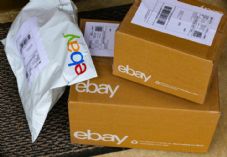UK DIY News
Slow-Loading Websites Cost Retailers Nearly £60bn A Year In Lost Sales

- A new report by Fasthosts uncovers the reality behind a slow performing site that can set UK retailers back £59.6bn each year in lost sales
- Over half of Brits claim a slow webpage is the key reason for abandoning an online purchase
- Bristol residents are the biggest online shoppers during the pandemic
The COVID-19 pandemic has accelerated the shift towards digital and changed our online shopping behaviors, with more people now shopping online than ever before1. With this said, it’s crucial that retailers keep up with consumers’ needs or risk being left behind.
A new report by Fasthosts uncovers the astounding reality behind a slow performing site. The report reveals that a slow loading website can set retailers back a reported £59.6bn each year in lost sales*.
The survey data reveals that over half of Brits claim a slow webpage is the key reason for abandoning an online purchase and just under half refuse to revisit a website following a bad experience, making it double difficult for sluggish e-commerce sites to win their audience back. Fortunately for online retailers, just over a third of Brits allow a little leeway when it comes to loading times on a mobile device compared to alternative devices.
Bristol revealed as the biggest online shoppers during the pandemic
There has never been a more crucial time to focus on the integrity of your website than during the pandemic era, with 60% of Brits claiming to have upped their shopping habits since the outbreak of COVID-19.
Residents in Bristol are revealed to be the biggest online shoppers, with 66% shopping more regularly online during the pandemic, closely followed by Edinburgh (64%) and Leeds (63%).
Tips for improving website speed:
Scale and optimise your site imagery
A picture paints a thousand words, but this scale of information can be your site’s downfall. To make your website more efficient and decrease the load time, it’s crucial to optimise and scale your imagery. This means uploading them in an appropriate format, such as JPEG or PNG, but never BMP.
Compress pages
Compressing your content is crucial if your website is brimming with premium imagery and videos. While these are great additions to your page, they can increase load time and frustrate users. A simple solution is to add gzip compression to your pages, which will turn imagery into smaller files without compromising on quality.
Make sure you’ve enabled browser caching
Enabling browsing caching is always a good idea if you experience a lot of repeat visitors. Essentially, browser caching allows a user to download and store your pages locally, so that next time they visit they’ll not be subject to server wait times.
Tighten up code
When building your website, take the time to consider each piece of code and whether it really demands a place on your page. Stripping your code and tags back to just necessary additions may seem like you’re only making minor tweaks, but if you can improve load time by just a single second, you’ll certainly reap the benefits.
Upgrade your web hosting platform
Picking the right website host can go a long way towards creating a smoother online service, so make sure you’re using a platform designed to offer speedy load times. There will be cheaper options on the market, but, while saving initially, you’re losing out in the long run because of a laboured loading screen.
For the full report please visit here.
Source : Fasthosts
Image : ifc2 / iStock 502709989
Insight DIY is the only source of market information that I need and they always have the latest news before anyone else.











































